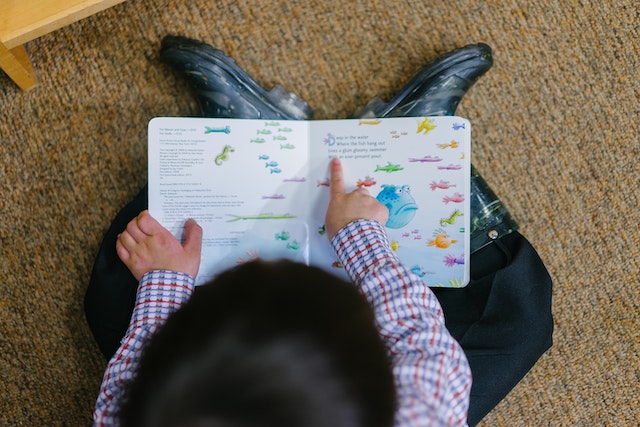5 Things I Want to Help Parents With
The purpose of this blog is to help parents with young children spending quality times with the kids while teaching them through fun learning activities. I believe that parents should aways be a child’s first teacher and learning or teaching should not be a stressful activity.
Nowadays, kids are spending lot of time in front of the screen at a very young age. Many studies show that too much screen time can affect a child’s health and development. It can lead to increased risk of obesity, anxiety, depression, and academic difficulties.
I remember my own childhood was full of fun learning activities that my parents used to keep me busy all day. We would spend lots of time learning about animals, flowers, insects, planets, and many different things through simple games. Other activities include coloring pages, crafting, and outdoor games. I had a very fun and healthy childhood, and this is what I want for all the little kids to have.
I love to have my toddlers exploring different things and get to know what he loves. I also love creating color pages, puzzles, and other learning activity sheets for my toddler boy. I thought I would share what I have learned with other parents who want their kids to have the happiest childhood.
Parenting doesn’t have to be stressful all the time.
Being a mom of a toddler, I understand that parenting can be challenging and stressful from time to time. Therefore, many of us are always looking for ways to make parent less stressful. There are a few ways to reduce the level of stress (note that I say reduce and not remove because let be honest with ourselves, it is impossible to be stress-free in raising little humans).
- Have some fun: it may be difficult to find time to have fun when you have kids, but it is important to remember to set aside some time for yourself to recharge and reduce your stress. You can do so by asking for help from your spouse, parents, siblings, relatives, friends or hire a babysitter for a short period of time. It is time for you to relax.
- Involve kids in daily activities: for parents with older children, you can ask them to participate in small chores like folding laundry, helping with groceries, or cleaning the table. The fact is that most little kids enjoy doing these activities with their parents. So, let’s get them involved and help lifting a little weight off your shoulders.
- Have a to-do list: keeping everything in your head can make things go south. Imagine yourself at the end of the day realizing that you forget to pick up one of your kid’s assignments or the dirty laundry is still in the bathroom. Nothing can add more stress than extra work when the day ends. Therefore, having a to-do list is very handy. All you need to do is take a few minutes at the beginning of the day to write down the list of what needs to be done. This helps giving you a clear picture of how you can complete these tasks. In addition, some tasks might be done simultaneously like picking up the kids when the laundry is in the washing machine. Crossing the completed task also gives you the feeling of accomplishment and encouragement. This will motivate you to move forward with your day.
I want to help parents enjoy quality time with their kids and create strong family bonds.
It is important to show your children that you love them. This helps to build them strong mentally and emotionally. According to Catherine Jones’ article, spending quality time with your children reduce the risk of behavior issues.
What is quality time?
As parents, we all spend lots of time for our children like picking them up from schools, making hot meals for them, doing their laundry, and helping them with their homework. However, these are not quality time spent together. Quality time is the time you spent with your children doing the things they love. This time requires your full attention. For example, spending 30 minutes drawing together or going on a family walk after dinner. For younger kids, bed-time stories are also fun and enjoyable.
Below are some tips for making quality time and stay connected to your children:
- Schedule a time when you can put aside all other tasks to spend with your children. During this time, you and your children are working on their favorite activities, playing their favorite games with minimal distractions. The tip is to turn your phone off or put it away.
- Create a daily routine for quality time. It can be some small activity like reading book before bed, having drinks (juice, water, milk…) together and having small talks, going on a short walk.
- Let your children pick their activities. This will enable them to grow their creativity and discover their passion at early ages.
- Reinforce and encourage positive behaviors.
- Most importantly, tell and show your children that you love them every day.
I want parents to explore different options for their kids and learn about their passions.
Exploring helps giving little children opportunities to learn more about the world and how it works. It helps younger kids develop new skills and confidence. Exploration helps children discover their passion at early ages.
There are multiple things parents can do to help their kids exploring and developing deeper understanding about the world around them.
- Work with them. Everything is new to little kids. They learn by listening to our words and observing our actions. Thus, one way to help them during their exploration session is to model it. Tell your children what you are doing and why you are doing it. For example, bring a fruit close to your nose and gently sniff it and say that you want to find out what this fruit smell like. Then, encourage your children to do the same.
- Observe and listen to them. Children might have very different thoughts on how certain things work. Observation and listening help parents see things on their children’s perspective and evaluate their understanding of the matter.
- Ask them questions. Questions help stimulating thinking and problem-solving abilities.
- Encourage questions. One of the best ways to learn is to ask questions. Encourage your children to ask questions about the activities. That will open the door creativity.
- Inspire them. Let your children start doing different activities on their own. Inspire them to use their own ways of doing and their own words of expressing.
Learning games help boost brain development for children.
As a natural part of parenting, we all know that it is important to support our children in any possible way. The first five years are very crucial for building the foundation of a child’s future physical and mental health as well as development. In early years, children learn by observing and mimicking our actions. In addition to that, games are a fun way to boost their brain development. Games are also a great choice for quality times with younger kids. However, educational games can be very expensive. Therefore, my goal is to help making educational activities more affordable to parents through printable activity sheets or workbooks. Below are a few printable games and learning activities that you can try today:
- Matching games: kids can play the matching games in many ways including matching the exact objects, matching the colors, matching the food, and much more. These matching games create endless learning opportunities for young kids ages 2-4.
- Categorizing games: when kids are a little older and know more about the world around them. They can start playing the categorizing games. These games are designed to help kids understand how to group things that share similar characteristics. An example of this game is to identify and group fruits and vegetables.
- Scavenger hunt games: these games are great for both indoor and outdoor activities. Scavenger hunt games are great to encourage kids to apply what they learn in the real world.
- Puzzle games: there are many different types of puzzles, and they are all good for brain development. Kids of all ages can enjoy puzzles and start understanding the concept of building a big masterpiece step by step. In addition, puzzles can keep your kids’ attention for a long time.
Eventually, I want to launch my own children workbook line.
I am a mom of a toddler who is growing fast every day. So, I am very passionate about creating learning materials for his development every step of the way. My goal is to share these workbooks with other parents of children ages 1-10. My vision is to create fun, easy to use and affordable workbooks that parents can use to teach their children whether they are homeschooling or not. Here are a few examples of the workbooks:
- Number and counting workbooks
- First letters workbooks
- Tracing workbooks
- Coloring books
- Basic math workbooks (grade 1-5)
- Educational games


